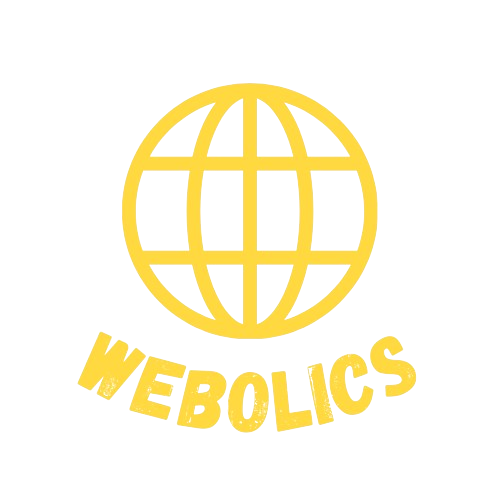The Role Of Blockchain In Supply Chain Management

The supply chain management industry is a complex web of interconnected processes, involving multiple stakeholders, from manufacturers and suppliers to distributors and retailers. It is imperative for businesses to have an efficient and reliable supply chain to ensure timely delivery of products or services to customers. However, maintaining transparency, traceability, and trust within this intricate network has always been a challenge. Enter blockchain technology – a revolutionary concept that has the potential to transform supply chain management as we know it.
What is Blockchain?
Blockchain is a decentralized, distributed ledger technology that allows for the secure and transparent recording of transactions across multiple computers or nodes. It is often referred to as a “digital ledger” that can record and store data in a way that ensures its immutability and integrity. Each transaction or record, known as a block, is linked to the previous one, forming a chain of blocks, hence the name “blockchain”.
Blockchain in Supply Chain Management:
The integration of blockchain technology in supply chain management offers a myriad of benefits, ranging from increased efficiency and cost savings to enhanced transparency and trust. Let’s delve into some of the key roles that blockchain plays in revolutionizing supply chain management:
1. Transparency:
One of the primary challenges in supply chain management is the lack of transparency. With numerous participants involved in the process, it becomes difficult to track and verify each step, leading to delays, errors, and even fraudulent activities. Blockchain technology tackles this issue by providing a transparent and immutable record of every transaction, allowing stakeholders to trace the movement of goods or services from their origin to the final destination. This transparency helps identify bottlenecks, inefficiencies, and potential risks, enabling businesses to make informed decisions and optimize their supply chain.
2. Traceability:
Another critical aspect of supply chain management is traceability. In industries such as food and pharmaceuticals, it is imperative to track the origin, quality, and handling of products to ensure safety and compliance with regulations. Blockchain’s decentralized and transparent nature enables the creation of a tamper-proof record, documenting each step of the supply chain, including the source of raw materials, manufacturing processes, storage conditions, and transportation details. This traceability not only enhances consumer trust but also aids in identifying and resolving issues such as product recalls or counterfeit goods.
3. Security:
The security of supply chain data is of utmost importance, as any unauthorized access or manipulation can have severe consequences, ranging from financial losses to reputational damage. Blockchain technology ensures the security of supply chain data by employing cryptographic algorithms and distributed consensus mechanisms. Each transaction recorded on the blockchain is encrypted and linked to the previous one, making it virtually impossible for anyone to alter or tamper with the data. Moreover, the decentralized nature of blockchain eliminates the need for a central authority, reducing the risk of data breaches or single points of failure.
4. Efficiency and Cost Savings:
Traditional supply chain management often involves a plethora of intermediaries, paperwork, and manual processes, leading to inefficiencies and increased costs. Blockchain technology streamlines these processes by eliminating the need for intermediaries and automating tasks through smart contracts. These self-executing contracts are programmed to trigger actions or transactions based on predefined conditions, ensuring seamless coordination and reducing the time and costs associated with manual interventions. Furthermore, the transparency and traceability offered by blockchain enable real-time tracking of goods, minimizing delays and enhancing overall supply chain efficiency.
5. Supplier Management and Compliance:
Managing suppliers and ensuring compliance with regulations is a critical aspect of supply chain management. Blockchain technology simplifies supplier management by providing a secure and transparent platform for sharing and verifying supplier information, certifications, and performance data. This enables businesses to make informed decisions while selecting and onboarding suppliers, ensuring they meet the required quality standards and regulatory compliance. Additionally, blockchain-based smart contracts can automate the verification and enforcement of contractual obligations, reducing the administrative burden and ensuring compliance throughout the supply chain.
6. Sustainability and Ethical Sourcing:
In recent years, there has been a growing emphasis on sustainability and ethical sourcing practices. Consumers are increasingly demanding transparency regarding the environmental and social impact of the products they purchase. Blockchain technology can play a vital role in addressing these concerns by providing a verifiable record of the entire supply chain, including the origin of raw materials, manufacturing processes, and labor conditions. This transparency enables businesses to demonstrate their commitment to sustainability and ethical practices, fostering consumer trust and loyalty.
Conclusion:
Blockchain technology has the potential to revolutionize supply chain management by providing transparency, traceability, and trust across the entire network. From enhancing efficiency and cost savings to ensuring compliance and sustainability, blockchain offers a multitude of benefits that can transform the way businesses operate and collaborate in the supply chain. However, despite its immense potential, widespread adoption of blockchain in supply chain management is still in its nascent stage. As businesses and industries continue to explore and embrace this technology, we can expect significant advancements in the years to come, ushering in a new era of transparency, traceability, and trust in supply chain management.





